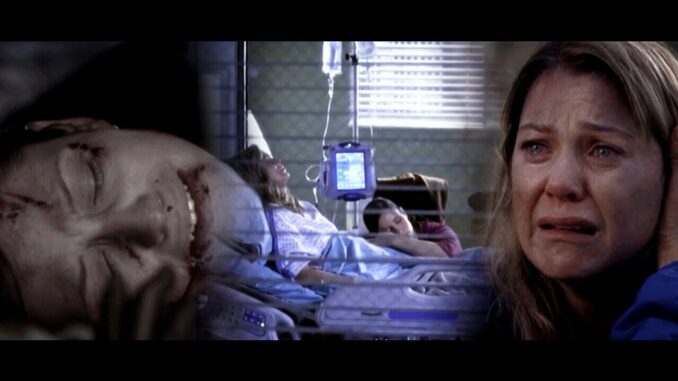
Tragedy Strikes Grey's Anatomy: Lexie's Heartbreaking Exit
In the sprawling, often brutal landscape of Shonda Rhimes' Grey's Anatomy, tragedy is not an occasional visitor but a resident tenant, ever-present, lurking just beyond the operating room doors. Yet, even for a show renowned for its gut-wrenching twists and character demises, the exit of Lexie Grey in the Season 8 finale, "Flight," stands as a particularly poignant and viscerally heartbreaking moment. It wasn't just a character dying; it was a fragile bloom crushed, a nascent love story tragically aborted, and a stark reminder of the show's capacity for inflicting deep, enduring pain.
Lexie Grey, initially introduced as Meredith's "little sister" – a bright-eyed, almost annoyingly optimistic intern – had blossomed into a beloved fixture at Seattle Grace. She was the counterpoint to Meredith's darkness, a burst of sunshine in the often-gloomy hospital corridors. Her journey from an eager, sometimes insecure intern to a skilled, compassionate surgeon was a joy to watch. More than her professional growth, it was her relationships that cemented her place in the viewers' hearts: her complicated but ultimately loving bond with Meredith, her earnest friendships, and, most powerfully, her passionate, tumultuous romance with Mark Sloan. "MerDer" may have been the show's epic love, but "Slexie" was its beating, hopeful heart – a love story between two flawed but deeply devoted individuals, yearning for a future together. This established connection, this investment in her potential and her happiness, was precisely what made her demise so uniquely devastating.
The scene itself unfolded with a horrifying, almost cinematic dread. The plane crash, a sudden, brutal act of God, left the beloved doctors stranded in the wilderness, vulnerable and stripped of their sterile hospital sanctuary. But the true devastation was not in the chaos of the crash but in the agonizing stillness that followed, as Lexie lay trapped, her life ebbing away, under the gaze of the man who loved her most: Mark Sloan. It was a scene of poetic cruelty, as Mark, his own face battered and bruised, knelt beside her, whispering desperate promises of a future they would never have. He recounted their shared dreams – a house, children, growing old together – a poignant counterpoint to the blood-stained earth and the unsettling silence of the forest.
What made Lexie's exit so heartbreaking was its agonizing finality, devoid of the heroic sacrifice or dramatic last words often afforded to departing characters. There was no grand gesture, just a slow, painful fading. Mark’s raw vulnerability, his desperate pleas for her to stay, his heartbroken admission of love – "You are the love of my life. I can't live without you" – were met with Lexie's almost childlike, fading whispers of "Our kids… will be beautiful." Her last breaths were a testament to their love, a heartbreaking echo of a future stolen. And Meredith, her elder sister, stood by, a silent, helpless witness to the death of her only immediate family member, adding another layer of silent, profound grief to the unfolding tragedy.
The ripple effects of Lexie's death were profound and long-lasting, casting a shadow that extended far beyond that single episode. It directly led to Mark Sloan's own tragic demise, a man so utterly broken by the loss of his "Little Grey" that he simply couldn't recover. Their conjoined passing – a love so strong it transcended death – became a haunting legend within the show. The surviving crash victims, the "Seattle Grace Five," were forever scarred, their trauma manifesting in PTSD, career changes, and a permanent shift in the hospital's very identity, eventually becoming Grey Sloan Memorial. For the audience, Lexie’s exit served as a chilling reminder that no character, no matter how beloved, was truly safe from the show's merciless hand. It solidified Grey's Anatomy's reputation as a purveyor of profound emotional experiences, often at the cost of its characters' happiness and its viewers' peace of mind.
Lexie Grey's exit was not merely a plot device; it was a masterclass in televisual tragedy. It was sudden, brutal, and left an indelible scar. It showcased the fleeting nature of happiness and the senselessness of loss. By robbing viewers of a beloved character's potential, by tearing apart a hard-won love story, and by forcing its remaining characters to confront an unimaginable trauma, Grey's Anatomy delivered one of its most potent, agonizing, and ultimately, unforgettable heartbreak moments. Lexie Grey may have left the screen, but her heartbreaking exit remains etched in the collective memory of fans, a testament to the show's unique power to wound and to heal, often in the very same breath.